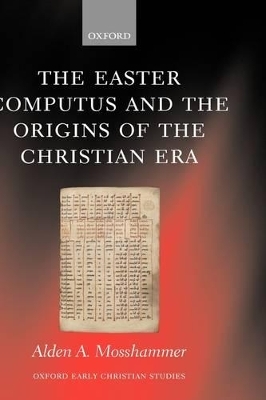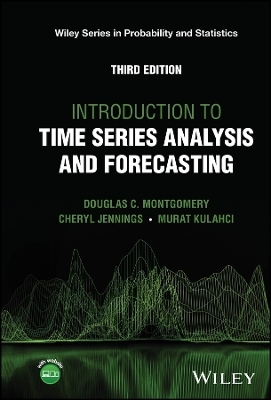
The Easter Computus and the Origins of the Christian Era
Oxford University Press (Verlag)
978-0-19-954312-0 (ISBN)
The system of numbering the years AD (Anni Domini, Years of the Lord) originated with Dionysius Exiguus. Dionysius drafted a 95-year table of dates for Easter beginning with the year 532 AD. Why Dionysius chose the year that he did to number as '1' has been a source of controversy and speculation for almost 1500 years. According to the Gospel of Luke (3.1; 3.23), Jesus was baptized in the 15th year of the emperor Tiberius and was about 30 years old at the time. The 15th year of Tiberius was AD 29. If Jesus was 30 years old in AD 29, then he was born in the year that we call 2 BC. Most ancient authorities dated the Nativity accordingly.
Alden Mosshammer provides the first comprehensive study of early Christian methods for calculating the date of Easter to have appeared in English in more than one hundred years. He offers an entirely new history of those methods, both Latin and Greek, from the earliest such calculations in the late second century until the emergence of the Byzantine era in the seventh century. From this history, Mosshammer draws the fresh hypothesis that Dionysius did not calculate or otherwise invent a new date for the birth of Jesus, instead adopting a date that was already well established in the Greek church. Mosshammer offers compelling new conclusions on the origins of the Christian era drawing upon evidence found in the fragments of Julius Africanus, of Panodorus of Alexandria, and in the traditions of the Armenian church.
I: CONTEXTS ; 1. Introduction ; 2. Chronological Systems ; 3. Easter and the Passover Moon ; II: THE EASTER TABLES OF DIONYSIUS EXIGUUS ; 4. The Letters to Boniface and Petronius ; 5. The Structure of the 19-year Cycle ; 6. The Computistical Rules ; III: PASCHAL CALCULATIONS IN EARLY CHRISTIANITY ; 7. The 8-year Cycle and the Invention of the Epacts ; 8. The 19-year cycle of Anatolius ; 9. Athanasius and the Council of Sardica ; 10. The Classical Alexandrian Cycle ; 11. Paschal Calculations at Rome ; 12. Paschal Calculations in the Eastern Empire ; 13. The Chronicon Paschale and the origins of the Byzantine era ; IV: THE ORIGINS OF THE CHRISTIAN ERA ; 14. Evidence for the chronology of Jesus ; 15. The Christian era of Dionysius Exiguus ; 16. The Christian era of Panodorus ; 17. The Christian era of Julius Africanus ; 18. Anatolius and the Christian era ; Bibliography ; Index
| Erscheint lt. Verlag | 16.10.2008 |
|---|---|
| Reihe/Serie | Oxford Early Christian Studies |
| Verlagsort | Oxford |
| Sprache | englisch |
| Maße | 163 x 240 mm |
| Gewicht | 851 g |
| Themenwelt | Geschichte ► Hilfswissenschaften ► Chronologie |
| Geschichte ► Teilgebiete der Geschichte ► Religionsgeschichte | |
| Religion / Theologie ► Christentum ► Kirchengeschichte | |
| Naturwissenschaften | |
| ISBN-10 | 0-19-954312-7 / 0199543127 |
| ISBN-13 | 978-0-19-954312-0 / 9780199543120 |
| Zustand | Neuware |
| Haben Sie eine Frage zum Produkt? |
aus dem Bereich


